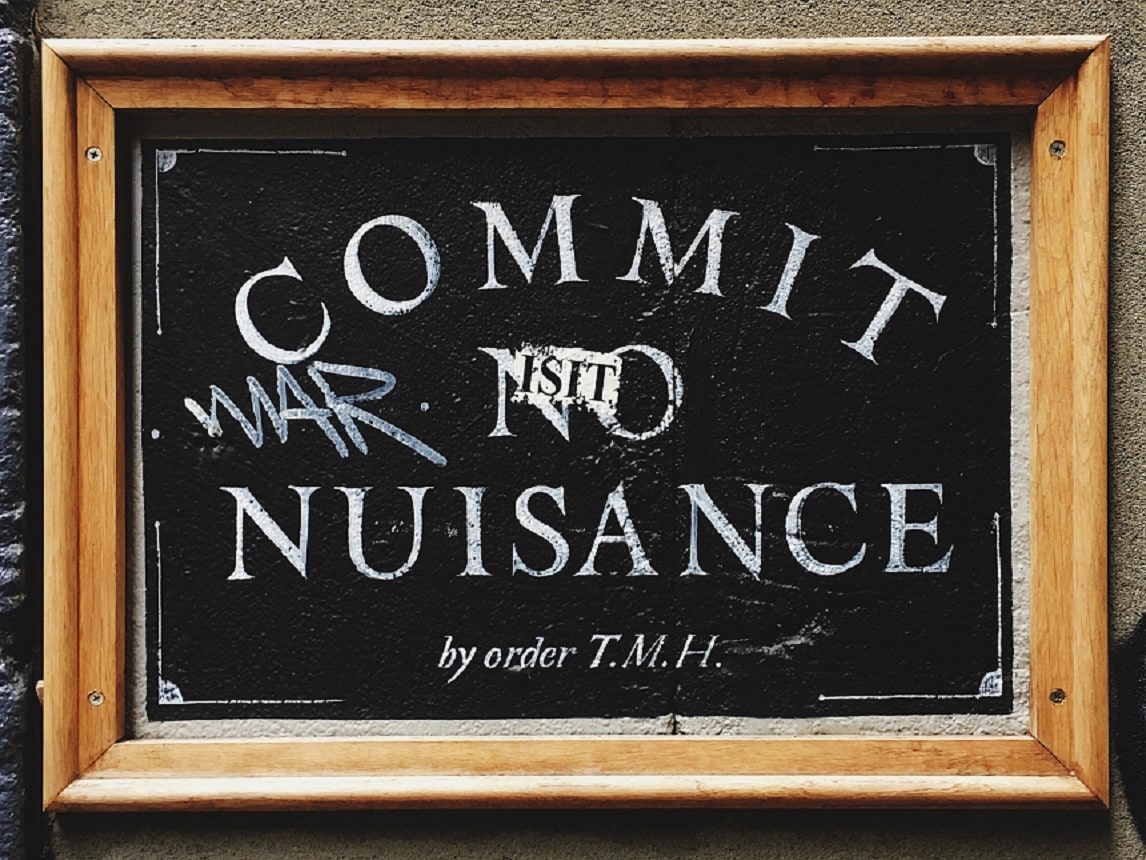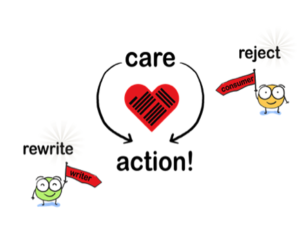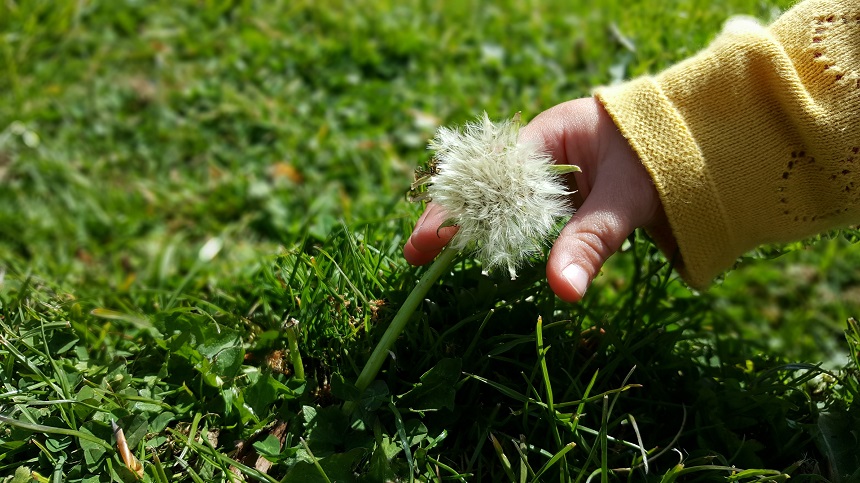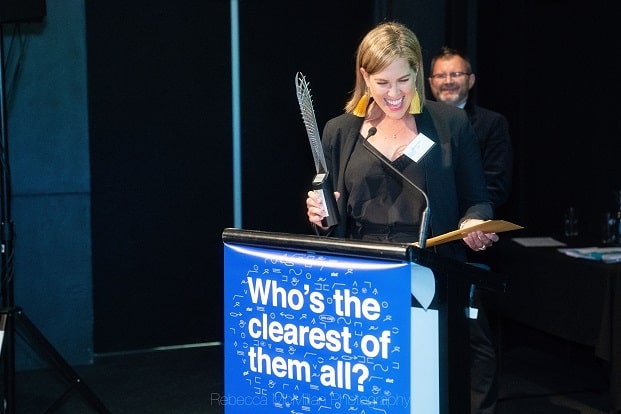
Consumer NZ wants the best for New Zealand communication. Image by Daria Nepriakhina. Unsplash licence.
The Plain English Awards and Consumer NZ have something very important in common — we both want what’s best for New Zealanders.
The Plain English Awards is a not-for-profit charity that aims to raise the bar for clear communication. We want everyday New Zealanders to understand what’s written for them.
Consumer NZ is a non-profit organisation dedicated to getting New Zealanders a fairer deal. So it’ll be no surprise that Consumer NZ is a long-term supporter of the Plain English Awards. In particular, Consumer NZ has supported our People’s Choice categories for many years.
Consumer’s Chief Executive, Sue Chetwin, has been a member of our judging panel for several years, focusing specifically on our People’s Choice categories. She’s returning again this year as one of the panel judging our Worst Brainstrain category.
We’re sure you’ll join us too by nominating the best and the worst communications you find in your daily life. All of us want New Zealanders to be able to make legal, financial, health, and all sorts of other decisions with ease.
Take a look at what Consumer NZ has to say about this year’s People’s Choice Awards
Find out how to nominate documents here
Nicola Welby July 12th, 2019
Posted In: 2019 People's Choice Awards, Sponsors
Tags: Brain Strain Award, clear writing, Consumer NZ, Industry awards, PEA, People's Choice Awards, People's Choice Awards 2019, plain English, Plain English Awards, plain language, power of plain English, writing for the public

A helping hand can come from the most unlikely places. Image by Youssef Naddam. Unsplash licence.
In times of trouble, who might you expect to get help from? Friends, family, colleagues, or your close community all might offer to lend a hand. It’s not often that a complete stranger jumps in to help. Particularly one that’s disguised as an industry award with the title ‘Brainstrain’.
Meet your new friend — the Brainstrain Award
The People’s Choice Awards offer members of the public an opportunity to celebrate excellent communications and to draw attention to bad ones — through the Brainstrain Award.
Winning the Brainstrain Award is like being offered a helping hand from a stranger. We say ‘stranger’ because all nominations are anonymous (and free).
The ‘helping hand’ is an opportunity for the winner to turn their communication around and make it better than ever. (And maybe even enter the Turnaround Award in the next round of full Plain English Awards in 2020.)
The Brainstrain winner gets some plain English love
The winning nomination gets the unenviable title of ‘People’s Choice — Worst Brainstrain Communication’. Sure, the word ‘Brainstrain’ doesn’t sound that great. But when you read what else winners receive, the title becomes a little less ominous.
Our beloved Brainstrain winner receives not only the famous Brainstrain rubbish bin filled with sour worms, but also some very constructive feedback and training in the form of:
- feedback on their communication (and how it could be improved) from our expert panel of international judges
- the latest StyleWriter plain English editing software — single-user licence (from Editor Software)
- 2 hours free consultancy from Write Limited to start transforming the document or webpage into plain English
- a place on any of Write Limited’s 1-day open workshops to use before 31 March 2020.
Do your bit for improving New Zealand’s communication. Submit your nominations for this year’s Brainstrain Award
Nicola Welby June 26th, 2019
Posted In: 2019 People's Choice Awards, Brainstrain, Communications
Tags: Brainstrain, People's Choice Awards, plain language, Worst Brainstrain

Winning the People's Choice Award will have you jumping for joy. Image by Andre Hunter. Unsplash licence.
Whether you enter an award yourself or someone else nominates you, taking out a title brings plenty of benefits for the winner. This year’s People’s Choice Awards have prizes for the best — and the worst!
Best confirms that all your hard work was worth it
The highlight of winning our Best Plain English Communication category is probably the public recognition. Winners know that a member of the public thought something they created was a worthy entry for the Awards. And our international panel of judges thought it was the best in its class.
That’s not all though. Winners also receive:
- a stunning steel and bronze trophy produced for the Awards by Wellington sculptor Campbell Maud
- a single-use licence for StyleWriter plain English editing software
- a place on any of Write Limited’s 1-day open workshops.
Worst gives you a chance to turn things around
You might think that anyone ‘unlucky’ enough to win our Brainstrain category would have nothing to be happy about (except perhaps the bag of sour worms they’re given). But that’s definitely not the case. They actually have plenty to celebrate.
Winning the notorious Brainstrain category often acts as a catalyst for organisations to rethink their communications — and ultimately what their audience needs. Winners are forced to take a good hard look at the way they write, and work out how they can improve.
Winners get hugely valuable feedback from our judges about their communication. One previous winner used the feedback to revamp their communication. They did such an impressive job that it won the Best Plain English Turnaround Award the following year.
Winners of the Brainstrain category also receive:
- the (in)famous Brainstrain rubbish bin filled with sour worms
- a single-use licence for StyleWriter plain English editing software
- 2 hours free consultancy from Write Limited to start transforming the document or webpage into plain English
- a place on any of Write Limited’s 1-day open workshops.
Take a look at past Award winners on our website
Nicola Welby June 17th, 2019
Posted In: 2019 People's Choice Awards
Tags: Best Plain English Document, Brainstrain, People's Choice Awards, Plain English Awards, Plain English Awards 2019, Worst Brainstrain

Do you know someone whose writing makes you prickly? Nominate them for the 2019 Brainstrain award.
If you’ve been marking off the days on your calendar, you’ll know the time has come. Nominations for the 2019 People’s Choice Awards opened last Saturday.
Success worth being proud of
What we love about the People’s Choice Awards, and what many of you have told us you love too, is how our winners react to their success. Winners of our People’s Choice Best category are invariably enormously proud — and rightly so! Who wouldn’t be? Your work will have been singled out by a member of the public, judged against other outstanding entries, and deemed by the international judging panel to be the best!
Recognition to take in good humour
What about the winner of our award for the worst communication? Our Worst Brainstrain category recognises a document or website that a member of the public has found confusing, frustrating, obscure, or downright horrible. With all the potential fallout from winning this unenviable title, we love that our winners invariably accept their ‘success’ in good humour. And they see it as an opportunity to start over again, so that their communication serves its audience better.
Check out the acceptance speeches by some past winners of the People’s Choice Worst Brainstrain award:
Nicola Welby June 5th, 2019
Posted In: 2019 People's Choice Awards, Brainstrain, Winners
Tags: Best Plain English Document, Brainstrain, People's Choice, Worst Brainstrain

Is your writing like a can of worms? Image by Sam Howzit, Creative Commons 2.0 licence.
You’re in for a plain English treat over the next couple of years. This year we’re pushing the People’s Choice Awards to the fore (we’ll be back with the full Awards next year). So right now, in 2019, we’re giving all of you in the public domain the chance to nominate your most and least favourite communications.
Here are three great reasons to get involved this year.
You want to do something about frustratingly confusing communications
When you nominate a communication for the not-so-coveted Brainstrain award, you’ll be helping to make a positive difference to the way organisations communicate. Almost without exception, organisations step up to ‘take it on the chin’ when nominated for the dreaded bin of sour worm lollies. With the public scrutiny they get from winning the Brainstrain category, they’re motivated to change.
You want to share a wonderful example of clear communication with the world
We love to celebrate the great work happening in so many organisations that are improving the way they communicate. Winning the award for Best Plain English Communication is a public pat on the back for New Zealand’s clearest communicators. Help them get the recognition they deserve.
You want to help improve the lives of everyday Kiwis
The People’s Choice Awards help organisations to keep things real with their communications. If they win the Best Plain English Communication award, they’re recognised for getting things right for their audience. If, however, they win the dreaded Brainstrain award, they have plenty of incentive to change for the good.
Don’t muck about. It’s time to send your nominations for this year’s People’s Choice Awards!
Nicola Welby May 27th, 2019
Posted In: 2019 People's Choice Awards, Industry awards, People, Social good
Tags: Brainstrain, clear thinking, jargon, jargon-busting, People's Choice

It's time for the public to have their say! Image by Jon Tyson. Unsplash licence
We’re ready to roll with the Awards in 2019 — and we’ve got some exciting plans to tell you about.
We’ll alternate between the Plain English Awards and the People’s Choice Awards
As you might imagine, it takes a tonne of support and time and resources to bring together annual awards. We’re now in our 14th year, and we know that our momentum is strong and that people’s appetite for plain English continues to grow.
After lots of planning and consideration, we’ve decided to alternate between having the full Plain English Awards one year and the People’s Choice Awards the next. Having held the full Awards last year in 2018, this means we’re focusing on the People’s Choice only in 2019.
Some of you will remember that the idea of holding the People’s Choice Awards on their own is actually not a new one. You may recall we held them on their own in 2016, to coincide with the Clarity2016 conference here in Wellington.
Entries for this year’s People’s Choice Awards will open on Saturday, 1 June
Once entries are open, members of the public will be able to nominate an outstanding communication of their choice for the People’s Choice — Best Plain English Communication.
People will also be able to nominate a miserable communication for the notorious People’s Choice — Worst Brainstrain Communication.
Entries in the People’s Choice Awards are free and will be judged by a panel of plain language specialists from New Zealand and overseas.
We’re planning a mid-year Awards ceremony
Another result of our planning is that we’ve decided to aim for a mid-year ceremony. Traditionally we’ve celebrated our winners in November. However, after this year, entries will open near the end of the year and we’ll celebrate winners the following winter. Because who doesn’t love a good mid-winter celebration?!
What about next year’s full Plain English Awards?
Entries for the 2020 Plain English Awards will open in November this year. We’ll give you plenty of information before then, so keep your eye out for our newsletters and other publicity. Subscribe to our newsletter
Thanks for following and supporting the annual Plain English Awards. You all play a big part in making these Awards a valuable and exciting event.
Nicola Welby May 9th, 2019
Posted In: 2019 People's Choice Awards, Communications, Industry awards, People's Choice awards
Tags: Brain Strain Awards, People's Choice Awards, Plain English Awards
Read on for part 2 of the inspiring speech given by Lynda Harris, Awards founder and CE of main sponsor Write Limited, at the 2018 Plain English Awards
I said that care can be a powerful catalyst for action if we will act on what we feel prompted to do. The three law firm owners I interviewed had done just that — they literally turned their values and sense of care into strong action.
So, believing what you do about the power of plain language, my question to you as both writer and consumer is ‘what action can you take that is bigger and bolder than before?’ How can you make your sense of care count?
As a writer your awareness of the benefits of plain language will naturally spur you on to rewrite. Make your effort meaningful! What significant project needs your support and insights? Which of your reader groups are most in need? Who must you persuade? Where can you make a difference?
As a consumer, it’s your voice that will bring change, so speak up! When you receive a document that is anything but reader-friendly, reject! Don‘t sign a difficult to understand contract. Query unclear instructions and ask for better. Tell companies what you think of their convoluted policies.
Let care equal action. Let care equal clear.

Find out more about the WriteMark Plain Language Standard
Melissa Mebus February 14th, 2019
Posted In: 2018 Plain English Awards, Industry awards, Social good
Tags: 2018 Plain English Awards, Care, clear communication, Social good

Taking care costs nothing and means everything. Image by Ross Findon. Unsplash licence
Read on for part 1 of the inspiring speech given by Lynda Harris, Awards founder and CE of main sponsor Write Limited, at the 2018 Plain English Awards
Good evening! Let me start with a question: Why are you here? What prompted you to enter the annual Plain English Awards? What brought you along tonight?
I’m pretty sure that you’re here because you care. You care about the cause. You care about the ideal of plain language because you understand the cost, in both financial and human terms, of poorly conceived and written communications. You care about wasted effort, wasted time, and wasted money.
And you care about the enormous disadvantage that poor writing can bring, especially when the communications are about access to justice, or help of some kind, or are connected with legal, financial, or health services.
It was the very same notion of care that prompted us, 13 years ago, to set up these Awards.
It was because they cared that our foundation sponsors, Consumer, TechCommNZ, and Graphic Solutions came on board, as did our other wonderful sponsors who followed.
And it was also that notion of care that led us to establish the WriteMark Plain Language Standard, now cleverly rebranded by Craig Christensen to reflect that central idea of — you got it — care.

The thought I’d like to leave you with tonight is that, rather than thinking of care as simply an emotion connected with plain language, let’s recognise that care has tremendous value in its own right. Care can be a powerful catalyst for action if we follow through on what we feel prompted to do.
I came to this conclusion after preparing for a presentation at Clarity2018 in Montreal recently. The conference was attended by over 500 delegates from around the world, most of them lawyers. In my presentation I explored the idea that having a set of strong, people-based values baked into the firm’s mission might lead naturally to clearer, more accessible law.
I interviewed several B Corp law firms in Australia and Canada. B Corps are accredited organisations that believe business can be a force for good in the world.
What struck me was that in each conversation the people I interviewed used the word care — a lot. They also used another word: ‘believe’. As they spoke about what they believed in, their values, and precisely what they care about, became clear.
Here’s what three of those firms said.
Alexandra Doig from Atticus values care in communication
I loved my interview with Alexandra Doig, Managing Partner of Atticus Lawyers in Melbourne, Australia. With strong convictions about human rights, Alexandra chose to get B Corp accreditation several years ago. Her core philosophy, ‘We believe in treating people as they would want to be treated’, shone through our entire conversation.
It’s not often you hear a lawyer say, ‘We want everyone to feel comfortable all of the time. We know clients are already stressed with the issue. We aim to reduce that stress and make them feel happier … create a safe space … feel that we are their cheerleaders.’
I asked Alexandra the all-important question: Does your chief value of ‘care’ influence the way you write to your clients? The answer: ‘Yes. Telling people what they need to know, and doing all we can to help, means we need to write like a human. We need to communicate clearly and personally in ways that don’t alienate. We can’t give a client a convoluted document. We have to walk the talk and act on what we believe in.
‘We could write a ten-page document. We try to write a one-pager that clearly captures the most important info, and that the client can easily understand and be comfortable with. It’s a calculated risk — with benefits.
‘We want to write in a way that gives clients that lightbulb moment. If a client doesn’t walk away with a greater understanding of their position than they had when they arrived, we haven’t done our job properly.’
Bravo, Alexandra!
Joel Cranshaw from Clearpoint. believes in simple legal services
Joel’s strapline on his website says it all: ‘Legal services — reimagined simply.’ With a background as an experienced corporate lawyer, Joel said he’d always loved solving client problems. But as time went on, he felt less and less comfortable in a system based on chargeable units. ‘I felt there was no incentive to be efficient, and this often led to friction between client and lawyer.’
Prompted by strong values that focused on serving the client in the best way possible, Joel conceived Clearpoint’s unusual model, where they work on retainer for small to medium-sized firms in Melbourne and beyond. Achieving B Corp status was a natural fit.
Joel is a straight talker: ‘We want to work with compassionate people who value what we do and whose approach aligns with the concept of conscious capitalism. We don’t work with clients who don’t have our values.’
When asked if his values-based approach created clearer law, Joel’s answer was unequivocal: ‘Yes! I say that for two reasons. Our retainer-based fee model means that we must work efficiently — so we must be clear, concise, and to the point. And what we believe in, our philosophical approach to compassionately meeting clients’ needs, also means that we must communicate in ways they can readily understand.’
Applause once more from me!
Sophie Tremblay from Novalex runs a purpose-driven business
Sophie’s was a bold start-up story — similar to the Suspended Coffee movement (buy a coffee, pay for two — those who can’t afford to pay get coffee for free). Sophie and her business partner Ryan Hillier set up Novalex to have a self-sufficient business model, serving both corporate clients and others who need legal help. Neither an exclusively for-profit business, nor an exclusively philanthropic organisation, Novalex is a purpose-driven enterprise doing business for good. For every fee-paying hour, they give a pro-bono hour to eligible start-ups, non-profits, or individuals.
In Sophie’s words, ‘We believe everyone should have access to justice and top-notch legal advice. We hope that corporate clients will see using Novalex as a socially responsible choice. And we hope to give back in any way we can.’
Does this values-based model create clearer law? Sophie: ‘Absolutely! We know that even the smartest people aren’t necessarily familiar with legal terms and concepts. So a huge part of what we do is to make the law understandable. We use concrete examples and remove the abstract, along with many other techniques such as metaphor (“It’s like…”), and “This means…” We remove jargon and make important concepts stand out. We do what we need to do to be understood.’
Care intuitively leads to plain language
Hearing this long list of useful and well-founded plain language techniques, I asked Sophie if she had ever had any formal plain language training. She hadn’t. Nor had Alexandra or Joel. Yet instinctively, motivated by strong human values and a sense of care, all three ticked so many plain language boxes.
My hypothesis was looking good — all three firms proving that care really can be a shortcut to plain language. Admittedly my sample size was only three, but these inspiring leaders and others like them are truly showing the way to clearer law using an approach based on care.
Find out more about each of the three firms here:
Atticus
Clearpoint.
Novalex
Find out more about the WriteMark Plain Language Standard
Melissa Mebus February 12th, 2019
Posted In: 2018 Plain English Awards, Communications, Social good, Sponsors
Tags: 2018 Plain English Awards, Care, plain language, Social good

'We worked for 3 years to get this!' Winner of the Best Plain English Document — Private sector Jacqueline Taylor celebrates her success. Photo by Rebecca McMillan Photography.
What an amazing ceremony last night! Congratulations to all our 2018 winners — you deserved all the recognition you got. The feedback you each received from your judges truly shows that plain English is alive and kicking in New Zealand. It also shows that, as a Trust, we’re making great strides towards fulfilling our goals.
‘Keep going and spread the word!’
A special mention to the winners of our Plain English Champion — Best Individual or Team category. The work that’s gone into the Better Letters Project at the Ministry of Social Development is seriously changing the lives of everyday New Zealanders.
Our judges got it right when they said, ‘Keep going and spread the word! Imagine what New Zealand’s public service might look like if every government department took this approach!’
Find out about this year’s winners
Take a look at photographer Rebecca McMillan’s wonderful photos of the ceremony
Melissa Mebus November 16th, 2018
Posted In: 2018 awards ceremony, 2018 winners, Finalists, Social good, Winners
Tags: 2018 Plain English Awards, 2018 Winners, Champion, clear communication, People's Choice

It's time to celebrate this year's winners! Image by Adi Goldstein on Unsplash
Tickets are available now for this year’s Plain English Awards ceremony
Where? City Gallery Wellington
When? Thursday, 15 November
Come along and celebrate at this year’s ceremony. Join finalists, judges, sponsors, and other supporters for an evening of fun, festivity, and above all celebration.
Wellington Mayor Justin Lester will give an opening address at 5.30pm. And lawyer and comedian James Elliott will be our MC for the evening. Financial advisor, wealth coach, and author Martin Hawes will also return as a guest speaker.
You’ll have a chance to mix and mingle, with drinks and canapés, following the official segment of the ceremony.
Get your tickets now!
Melissa Mebus October 25th, 2018
Posted In: 2018 awards ceremony, 2018 Plain English Awards, Finalists, Winners
Tags: 2018 finalists, 2018 Plain English Awards, Celebration, Industry awards, winners













